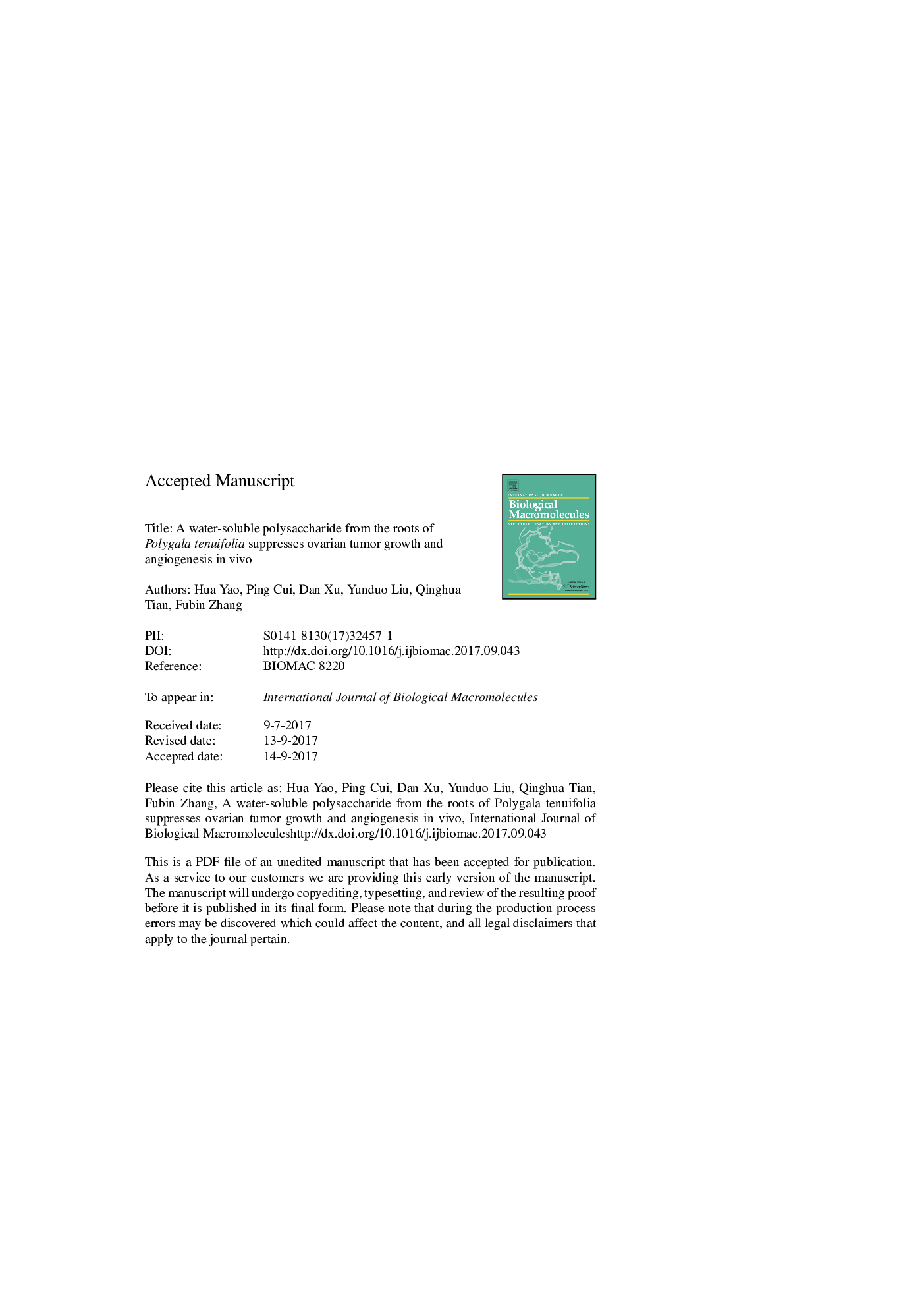| Article ID | Journal | Published Year | Pages | File Type |
|---|---|---|---|---|
| 8329148 | International Journal of Biological Macromolecules | 2018 | 24 Pages |
Abstract
PTP, one polysaccharide extracted from the roots of Polygala tenuifolia, has displayed anti-cancer activity in several types of ovarian cancer cells. This study aims to elucidate the structure of PTP and investigate its anticancer effects against SKOV3 xenograft tumor growth in BALB/c mice, as well as the underlying mechanisms involved. GC-MS and NMR data indicate that PTP has a backbone composed of 1,4,6-linked-β-Galp, 1,4-linked-β-Galp and 1,4-linked-β-Glcp, with non-reducing terminal 1-linked-α-Glcp attached to O-6 of 1,4,6-linked-β-Galp. The tumor growth was suppressed in mice following two week's PTP administration (10, 20 and 40 mg/kg) due to the induction of apoptosis, as detected by TUNEL assay. Moreover, lower serum VEGF and EGFR levels were observed in BALB/c mice treated with different doses of PTP when compared with that in untreated mice. Also, EGFR, VEGF, and CD34 were decreased in both transcript and protein levels in the tumor-bearing mice upon PTP treatment. Taken together, our data suggest that PTP appears to be a powerful chemopreventive agent for the patients with ovarian cancer, especially at advanced stage.
Keywords
Related Topics
Life Sciences
Biochemistry, Genetics and Molecular Biology
Biochemistry
Authors
Hua Yao, Ping Cui, Dan Xu, Yunduo Liu, Qinghua Tian, Fubin Zhang,
